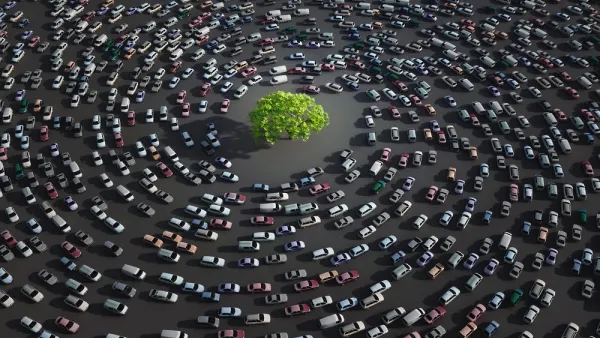The synopsis of the IPCC's fifth major climate assessment was released today in Stockholm. With near absolute certainty, the panel identified humans as the cause of the dangerously warming planet. Could the report propel languishing negotiations?
"Unveiling the latest United Nations assessment of climate science, the experts cited a litany of changes that are already under way, warned that they are likely to accelerate and expressed virtual certainty that human activity is the main cause," reports Justin Gillis.
“'Climate change is the greatest challenge of our time,' said Thomas F. Stocker, co-chairman of the Intergovernmental Panel on Climate Change, the United Nations-sponsored group of scientists that produced the report [PDF]. 'In short, it threatens our planet, our only home.'”
With a look at rising atmospheric carbon levels, land and ocean temperatures, and sea levels, the synopsis presents a litany of evidence of a changing planet. And for the first time, the world’s top climate scientists set "a 'carbon budget' for humanity — a limit on the amount of the primary greenhouse gas, carbon dioxide, that can be produced by industrial activities and the clearing of forests."
"To stand the best chance of keeping the planetary warming below an internationally agreed target of 3.6 degrees Fahrenheit (2 degrees Celsius) above the level of preindustrial times, the panel found, no more than one trillion metric tons of carbon can be burned and the resulting gas released into the atmosphere," says Gillis.
"Just over half that amount has already been emitted since the beginning of the Industrial Revolution, and at the rate energy consumption is growing, the trillionth ton will be released somewhere around 2040, according to calculations by Myles R. Allen, a scientist at the University of Oxford and one of the authors of the new report. More than three trillion tons of carbon are still left in the ground as fossil fuels."
FULL STORY: U.N. Climate Panel Endorses Ceiling on Global Emissions

Analysis: Cybertruck Fatality Rate Far Exceeds That of Ford Pinto
The Tesla Cybertruck was recalled seven times last year.

National Parks Layoffs Will Cause Communities to Lose Billions
Thousands of essential park workers were laid off this week, just before the busy spring break season.

Retro-silient?: America’s First “Eco-burb,” The Woodlands Turns 50
A master-planned community north of Houston offers lessons on green infrastructure and resilient design, but falls short of its founder’s lofty affordability and walkability goals.

Test News Post 1
This is a summary

Analysis: Cybertruck Fatality Rate Far Exceeds That of Ford Pinto
The Tesla Cybertruck was recalled seven times last year.

Test News Headline 46
Test for the image on the front page.
Urban Design for Planners 1: Software Tools
This six-course series explores essential urban design concepts using open source software and equips planners with the tools they need to participate fully in the urban design process.
Planning for Universal Design
Learn the tools for implementing Universal Design in planning regulations.
EMC Planning Group, Inc.
Planetizen
Planetizen
Mpact (formerly Rail~Volution)
Great Falls Development Authority, Inc.
HUDs Office of Policy Development and Research
NYU Wagner Graduate School of Public Service



























